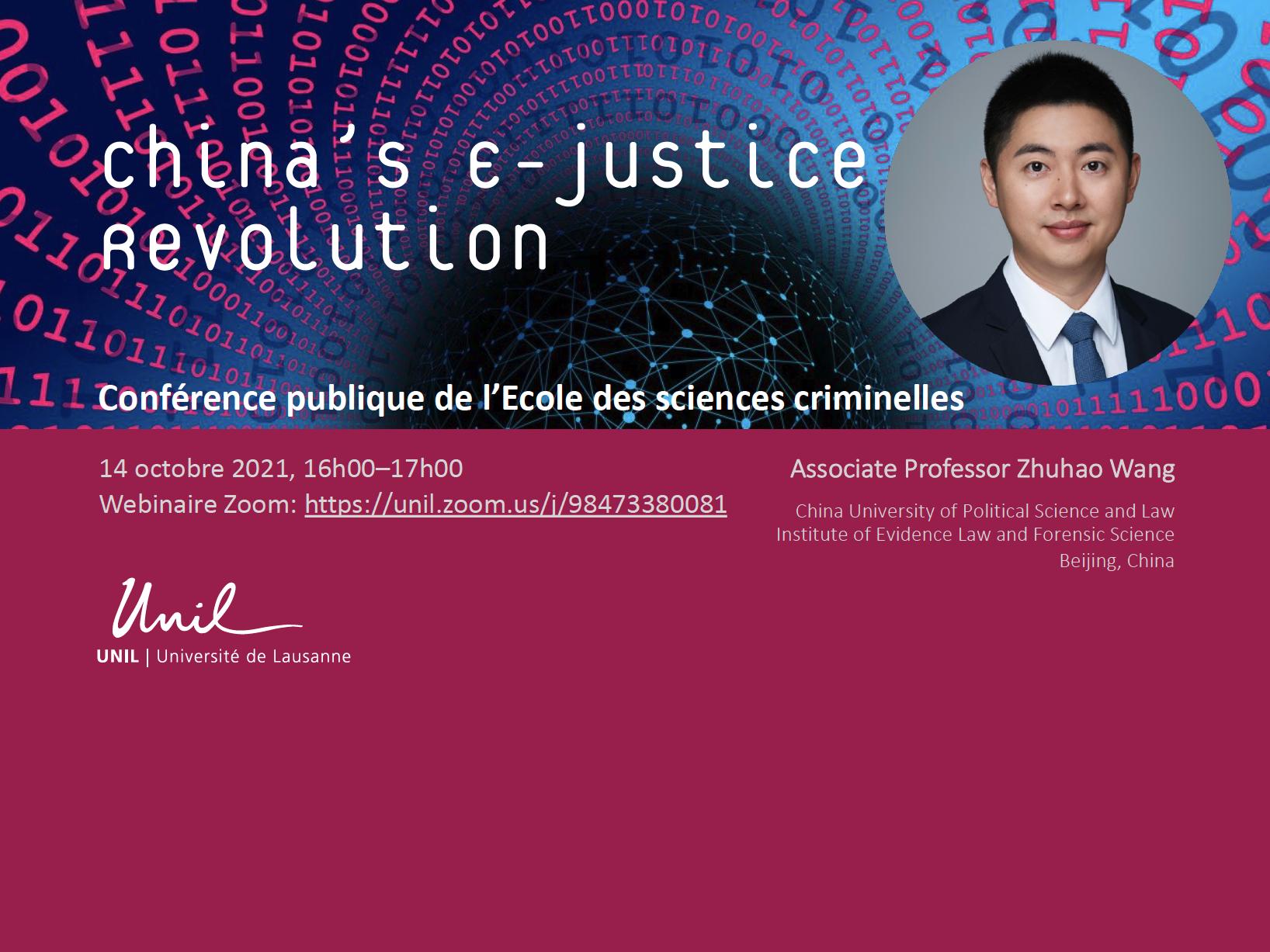China’s e-justice Revolution
Conférence publique de l’Ecole des sciences criminelles

Jeudi 14 octobre 2021 - 16h00 à 17h00 - En ligne - ZOOM
Electronic technologies are rapidly changing the ways that justice can be accessed by and realized in societies across the world. In China, one of the most "old-fashioned and restrained" societies, the judicial system has adopted the mindset of a tech company, aggressively promoting the application of electronic technologies in judicial proceedings. Developments have happened so rapidly that even insiders of the Chinese judicial system could easily lose track of the latest wave of changes as well as their overall magnitude.
This presentation discusses three of the latest e-justice developments in Chinese judicial proceedings: usage of electronic evidence and blockchain, the nationwide "intelligent court" project, and the establishment of internet courts.*
*Source: Zhuhao Wang, China’s E-justice Revolution, Judicature, Spring 2021, Volume 105 Number 1, pp. 36–47.
About the speaker
Zhuhao ("Henry") Wang is Associate Professor of Law at the Institute of Evidence Law and Forensic Science, China University of Political Science and Law (CUPL). He received his J.D. from Indiana University Bloomington (IN, U.S.) Maurer School of Law, and his L.L.M. from University of Pennsylvania Law School. Henry is currently a S.J.D. candidate at Northwestern University Pritzker School of Law (Chicago, IL), with Professor Ronald Allen (John Henry Wigmore Professor of Law at Northwestern University).
Henry joined the faculty of law at CUPL in December 2012, after two years of law practice with Locke Lord LLP in Dallas (TX, U.S). He serves as Councilor and Associate Executive Director of the International Association of Evidence Science, and is a member of the International Association of Procedural Law. Henry’s teaching and research areas include evidence law, juridical proof, legal AI, and transnational dispute resolutions.
Ecole des sciences criminelles